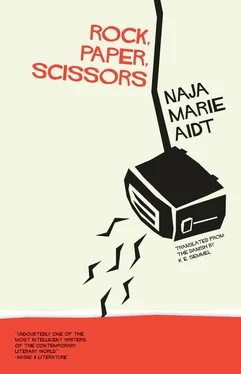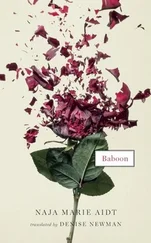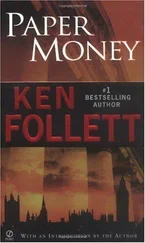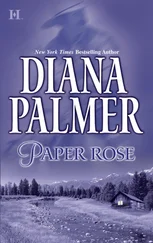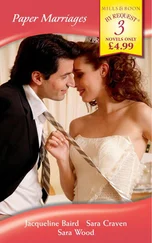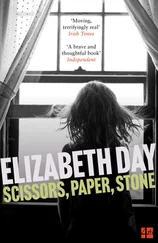Naja Aidt - Rock, Paper, Scissors
Здесь есть возможность читать онлайн «Naja Aidt - Rock, Paper, Scissors» весь текст электронной книги совершенно бесплатно (целиком полную версию без сокращений). В некоторых случаях можно слушать аудио, скачать через торрент в формате fb2 и присутствует краткое содержание. Год выпуска: 2015, Издательство: Open Letter, Жанр: Современная проза, на английском языке. Описание произведения, (предисловие) а так же отзывы посетителей доступны на портале библиотеки ЛибКат.
- Название:Rock, Paper, Scissors
- Автор:
- Издательство:Open Letter
- Жанр:
- Год:2015
- ISBN:нет данных
- Рейтинг книги:3 / 5. Голосов: 1
-
Избранное:Добавить в избранное
- Отзывы:
-
Ваша оценка:
- 60
- 1
- 2
- 3
- 4
- 5
Rock, Paper, Scissors: краткое содержание, описание и аннотация
Предлагаем к чтению аннотацию, описание, краткое содержание или предисловие (зависит от того, что написал сам автор книги «Rock, Paper, Scissors»). Если вы не нашли необходимую информацию о книге — напишите в комментариях, мы постараемся отыскать её.
Naja Marie Aidt's long-awaited first novel is a breathtaking page-turner and complex portrait of a man whose life slowly devolves into one of violence and jealousy.
Rock, Paper, Scissors opens shortly after the death of Thomas and Jenny's criminal father. While trying to fix a toaster that he left behind, Thomas discovers a secret, setting into motion a series of events leading to the dissolution of his life, and plunging him into a dark, shadowy underworld of violence and betrayal.
A gripping story written with a poet's sensibility and attention to language, Rock, Paper, Scissors showcases all of Aidt's gifts and will greatly expand the readership for one of Denmark's most decorated and beloved writers.
Naja Marie Aidt was born in Greenland and raised in Copenhagen. She is the author of seven collections of poetry and five short story collections, including Baboon (Two Lines Press), which received the Nordic Council's Literature Prize and the Danish Critics Prize for Literature. Rock, Paper, Scissors is her first novel.
Rock, Paper, Scissors — читать онлайн бесплатно полную книгу (весь текст) целиком
Ниже представлен текст книги, разбитый по страницам. Система сохранения места последней прочитанной страницы, позволяет с удобством читать онлайн бесплатно книгу «Rock, Paper, Scissors», без необходимости каждый раз заново искать на чём Вы остановились. Поставьте закладку, и сможете в любой момент перейти на страницу, на которой закончили чтение.
Интервал:
Закладка:
“Kagoshima.”
“Yeah, him. Go over to the station, Thomas. They need to see this, it’s too damn weird.” Thomas doesn’t respond. “If you don’t, I will,” Maloney adds.
“I’ll go over there in a bit.”
“You want coffee?”
Soon the new coffee automat’s making slurping, clicking sounds, and Maloney returns with two paper cups. He sits down. “Looks like you didn’t sleep a wink all night.”
“I haven’t.”
Maloney gives him a worried look. “You’ve certainly got a lot to contend with right now. Have you talked to Patricia?”
“Nope. Why should I?”
“Break-in, rape, break up, what the hell’s going on?” Maloney shakes his head regretfully. Thomas regards him. There’s something buoyant and fresh about Maloney despite his girth; he’s clean-shaven, wearing a spotless, light-blue shirt. Which even seems to be ironed. “And now this letter. What’s going on?” Thomas picks up the letter and leaves the store. The police station isn’t far away. But of course he goes in the opposite direction. He took a whole lot of money that should’ve gone to someone else. He can’t tell Kagoshima that, for Christ’s sake. He’s backed himself into a corner. It tears at his flesh, an urge to flee, a stab in his chest. He walks around the block and sits on a bench, but he can’t stay still; he stands, has to smoke, he trudges down to the water — which looks so ungodly disheartening today, cloudy and motionless, hardly a ripple on the surface. He returns to Maloney. “They’re looking into it,” he lies, “but from what they can see there are no fingerprints.” The floor guy calls, wants to settle the bill. The day passes, and mostly Thomas mopes, cursing himself, thinking angrily and vulnerably about Patricia, and then again: But the whole thing’s my fault , the rape, his fault, and it’s too late now, he can’t get her back, he can’t get rid of the money, and it’s so obvious that he’ll soon get a visit that won’t exactly be a social call, and what can they do now other than punish him brutally? All he wants is to go back to the hospital and lie there, in that green hollow, safe and sound, gliding in and out of sleep like a newborn, someone looking in on him, fluffing his pillows, adjusting his blanket, taking care of him; the nights will be long and peaceful, no one will look for him there, no one will find him, he’ll be among strangers, he’ll be a stranger himself — that’s the only relief he can imagine. “Maybe you should go on a trip,” Maloney says as they’re closing up. “Maybe as early as next week, after we’ve opened The Other. Go to the casino or something. Get your energy back. You look like a ghost.”
“That’s exactly what I am,” Thomas mumbles, turning off the chandelier. “Hey,” Maloney says. “The casino is the perfect solution! There’s alcohol, hot babes. You’ll forget all your troubles at the gaming tables. Unless of course you lose everything, but fucking hell, it’s fun. Do it, man!”
“Jenny tells me you’re moving in together?”
“Yeah,” Maloney smiles. “She fell in love with this place with a pear tree. Did she tell you that?”
Thomas wants to tell him that he’s happy for them, that it’s courageous of Maloney to finally move in with a woman, that it’s fantastic, but he can’t muster the energy. He’s already on his way down the street when Maloney finishes locking the door. “Where are you going?” Maloney calls out. “Don’t you want to get a beer?” “I gotta run,” Thomas calls back, but his shout is nothing more than a peculiar whistling, and when Thomas turns the corner he begins to sprint. He runs, faster and faster, he sprints through the city, sweaty, out of breath, red-faced, he runs as if fleeing from a huge beast that could rake its massive claws through him at any time and flay him open, slicing straight through the vulnerable flesh, tossing him around as if he were a child’s forgotten toy, trampling him into the dust, splitting him apart, until he’s utterly shapeless, nothing more than a bloody pulp, a black mush shorn from skeleton, and the skeleton is easily yanked apart, crushed, destroyed.
Thomas goes to a bar. He orders vodka. He sways on his feet, and every time he sips he thinks of Celan’s death fugue: “ Black milk of daybreak we drink it at sundown / we drink it at noon in the morning we drink it at night / we drink it and we drink it / we dig a grave in the breezes there one lies unconfined. . ” And he keeps drinking. He considers war and persecution and extermination: to be forced to dig your own grave. The Holocaust, mass-extinction, the black brands of history. He thinks of how everyone bears this brand. With frightening clarity he sees that it’s not just the exterminated who bear it, but the exterminator as well. Always. He shivers, trembling. To carry it with you. And the dead, who are gone, who haunt the living. Dead father, dead mother. He thinks of his own life, a suddenly splintered life, and he can’t determine when it began to splinter and change shape, to lose its substance and direction. He thinks of his own life as a war, he thinks of his unknown persecutors. But after the fourth glass the alcohol gives him a merciful gift, swaddles him in a robe of unfeeling, he’s pain-free now, he pinches himself on the arm, not even that hurts, he sighs loudly, relieved, drains his glass and looks around the bar, and there, in a dark corner, he thinks he recognizes a familiar face, lit in the glow of a nicotine-yellow basket lamp. Very slowly the person raises a cigarette to his mouth, and then he lifts his face. His eyes are glazed. He’s on more than alcohol. Looks straight through Thomas with his wasted heroin stare. And now it occurs to Thomas who this person is, it’s Mingo, the man at Ernesto’s concert who was tripping on acid, the man with the street like a gorge, the one with the girl sitting on his lap. Now he remembers what Alice told him: that it was the “exact opposite,” apparently the girl is selling drugs, not Mingo. He’s sitting by himself, drinking a cola. Slumping on the bench with the lit cigarette dangling between his fingers. He seems to have forgotten it. With his hair plastered on his head, he looks far more wretched and skinny than the last time Thomas saw him. And there’s the girl exiting the bathroom. What was her name? Anna? No. Andrea. She says something to Mingo, slides onto the bench beside him, nudges him to get his attention, nudges him again, hard, an elbow to his side, and then, very slowly, he fishes something or other from his pants packet and gives it to her. She drops it into her bag, gets up, and leaves without a word. But Thomas can see her standing on the sidewalk. She seems to be texting someone. On his bench, Mingo appears stoned, his head dipping against his chest. He drops his cigarette on the floor. A couple seated at a neighboring table turn to him, irritated, and the man extends his leg and stamps out the cigarette with his foot. Thomas orders another vodka. Andrea’s talking on her cellphone now, pacing back and forth. And when Mingo soon threatens to slide all the way down — he’s sagging at an odd angle between the bench and the floor, twisted around with one arm sticking straight up — the bartender kicks him out. Mingo tumbles onto the sidewalk. Andrea steps around him. And Thomas can’t see anymore. Maybe Mingo’s sitting down, or maybe he’s fallen. Thomas turns his back to the street. The bartender returns, shaking his head in consternation. “Fucking junkies,” he says. “I’m sick and tired of them.”
His father would get tanked at this bar whenever he had money in his pocket. It looks the same. Just as smoky, dark, and filthy. He and Jenny would sometimes get a cola whenever they marched up here and waited for their old man to be coaxed into going home. They always sat beside the door. The bartender’s name was Vladimir. He was a gentle man, who asked them about school and told them stories about his childhood near the sea. His father had been a fisherman. He would raise his eyebrows and laugh, so that you could see the black spaces between his missing teeth; the stench from his mouth was overwhelming, rotten, disgusting, like shit. He told them, “Mind your schooling, no matter what. Education is gold.” Sometimes he gave them crackers and salted almonds from the drawer under the counter. Fatso used to help them drag their father home. Their old man was silent and withdrawn whenever he got piss drunk, his legs would fail him, and his breathing sounded like a bellows, but he wouldn’t say a word. You weren’t supposed to get in his way, don’t say anything, don’t be a pain. “Be invisible,” Thomas whispered to Jenny, and so Jenny learned to be invisible too. In the mirror on the wall behind the bar he can still see Andrea pacing back and forth. Invisible as a ghost. Like stars in daylight. Andrea pacing back and forth, back and forth. The bartender turns up the volume on the music. Thomas is sloshed. He watches the young blonde girl in the mirror, eyes transfixed. A man comes up beside her. Thomas wheels around. Through the tall window he sees the two figures clearly. At first he doesn’t believe his own eyes, but there’s no doubt: It’s Luke. Luke runs his hand through his thick mane of hair, Luke kisses Andrea on the cheek, Luke pushes the glass door open with his back and steps into the bar, followed by Andrea in her white, loose-fitting clothes, her purse slung over her shoulder. Thomas quickly turns his back to them. They sit next to the door, near where he and Jenny usually sat. He observes them in the mirror. They’re leaning across the table, talking, and so close that their foreheads nearly touch. Then Andrea fishes something from her purse and discretely hands it to Luke, after which he stands and leaves. The whole transaction takes, at most, two minutes. Andrea lights a cigarette, leans back in her chair, stretches her legs, kicks off her sandals. For Thomas there’s no doubt: that was either money or drugs that just passed between them. He drains his glass. So that means Luke is involved in drug trafficking. And now, when he thinks about it, tries to think, despite his inebriation, it becomes clear to him that Mingo must’ve paid Andrea for drugs — he’d clearly scored a fix — and that she probably then called Luke, who came to claim his share of the money. His thoughts whirl swiftly now. Because that means Luke’s a criminal. And his father’s last job, or whatever the hell it was, might’ve been drug-related. Maybe Jacques began pushing illegal narcotics in his old age, maybe that’s why he got nailed for such a long sentence. Thomas sits numbly on the narrow barstool. Or was it actually Luke’s job? Maybe his father was just playing along? Did he take the fall for Luke? Or did Luke threaten him to silence? Did Luke betray him? Does this mean Luke was the one — and here Thomas almost forgets to breathe — that Luke was the one responsible for Jacques’s death? He killed my father. His thoughts race dramatically, he sucks hard on his cigarette. Vodka pumps through his bloodstream, anesthetizing him. But his brain leaps in every direction at once. He sees his bloodshot eyes in the mirror. Looks at his cracked lips, and the huge sweat stains under his armpits. Luke, during their hike, telling them about Jacques’s shirts of Egyptian cotton. Jacques and Luke reciting poetry to each other while keeping an eye on their fishing lines, their blanks, their reels, the sea gray and calm. The old man knocking someone down, lifting a blunt object above another’s head as Luke flees. A backyard, a stairwell, a long room. Luke aiming a pistol at someone. His father in handcuffs. Thomas is immersed in his images: Luke with his caramel-colored eyes, Luke with his heart tattoo, his sword, his brawny biceps, his flexing muscles, handing a joint to Thomas as an owl hoots. Here he’s on the ladder painting the façade, here he’s ransacking the store with uncontrollable rage, here he’s carving that fucking currency sign into the door of Thomas’s apartment. Luke, Luc, The Kid. Thomas gulps two bottles of sparkling water in rapid succession and gorges on a handful of chips. Then he pays. Andrea’s gone. It’s hot outside. He can smell himself, rancid sweat, old smoke. Silence above the drunken noise from the bar. He thinks he sees Luke turning down a side street, and races after him. And when he reaches the corner: another glimpse of Luke, turning down another side street. But when Thomas gets to that spot, he doesn’t see him anywhere. For a moment he doesn’t know what to do. Maybe he’s hallucinating. He turns around. Wanders aimlessly through his old neighborhood, and his thoughts pound maniacally in his head: If Luke knows about the money and thinks it belongs to him, then Luke’s the one who wants it, there can be no doubt; he’s the one responsible for the break-in, the letter, the rape. Thomas stops, gasping. If Luke raped Patricia. If he. . wearing a mask, gloves. Patricia on the cold floor. Gloves that he also used during the break-in at the store, so meticulously planned and calculated. He understands everything now. Luke didn’t want money for helping to fix up the store, it wasn’t enough money for him; he has other plans . His secretiveness. The dangerously unpredictable, the wolf-smile, but also: smiling, handsome Luke surrounded by all the women on Kristin’s and Helena’s patio. The scent of jasmine drifting over the fusty, bitter earth. And his own desire for that scent and Luke’s smooth, strong body. Hatred churns in Thomas like a tornado. He deliberately seduced me , he thinks, and he seduced Patricia too. She’s got his number, she kissed him on the mouth when they said goodbye that Sunday out in the country, he’s helping her move. He raped her. His hatred is so intense that Thomas almost can’t contain it. Sweating profusely, he tramps through the streets with his long, furious strides. It’s 10:00 P.M., Friday night. He’s still so drunk that he’s not afraid. He passes his old school and stares into its dark courtyard; the enormous linden tree is still there, the benches along the wall. He walks past his father’s apartment building and studies the darkened windows; there’s a light on in Mrs. Krantz’s place. A squirrel scoots across the street. He thinks: I’ve seen through him. He feels something resembling joy. He pushes on. He knows he’s half-crazy. An odd, pure feeling of seeing everything from a new perspective. He’s floating above the world. He looks down at it, his eyes clear and sharp. And then a faint but niggling sensation that he’s out of sync with everything. But now, again: I’m holding the long end of the fucking stick . At last he finds himself standing before the new store. He sits on the stoop. He checks his cell phone. Jules left a message: “Hope you’re okay, buddy, give me a call.” Patricia writes: “The cat’s at Kamal’s.” He roots around in his pockets for his key, then unlocks the door, trips over the doorstep, and tumbles over the big cardboard box with the lamp inside. There he lies moaning on the newly varnished floor. He’s hurt his knee.
Читать дальшеИнтервал:
Закладка:
Похожие книги на «Rock, Paper, Scissors»
Представляем Вашему вниманию похожие книги на «Rock, Paper, Scissors» списком для выбора. Мы отобрали схожую по названию и смыслу литературу в надежде предоставить читателям больше вариантов отыскать новые, интересные, ещё непрочитанные произведения.
Обсуждение, отзывы о книге «Rock, Paper, Scissors» и просто собственные мнения читателей. Оставьте ваши комментарии, напишите, что Вы думаете о произведении, его смысле или главных героях. Укажите что конкретно понравилось, а что нет, и почему Вы так считаете.
